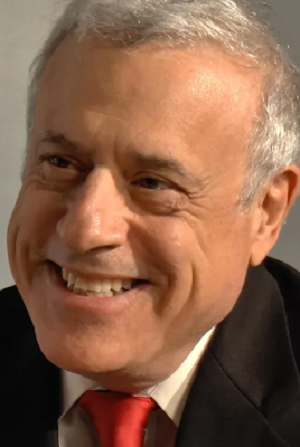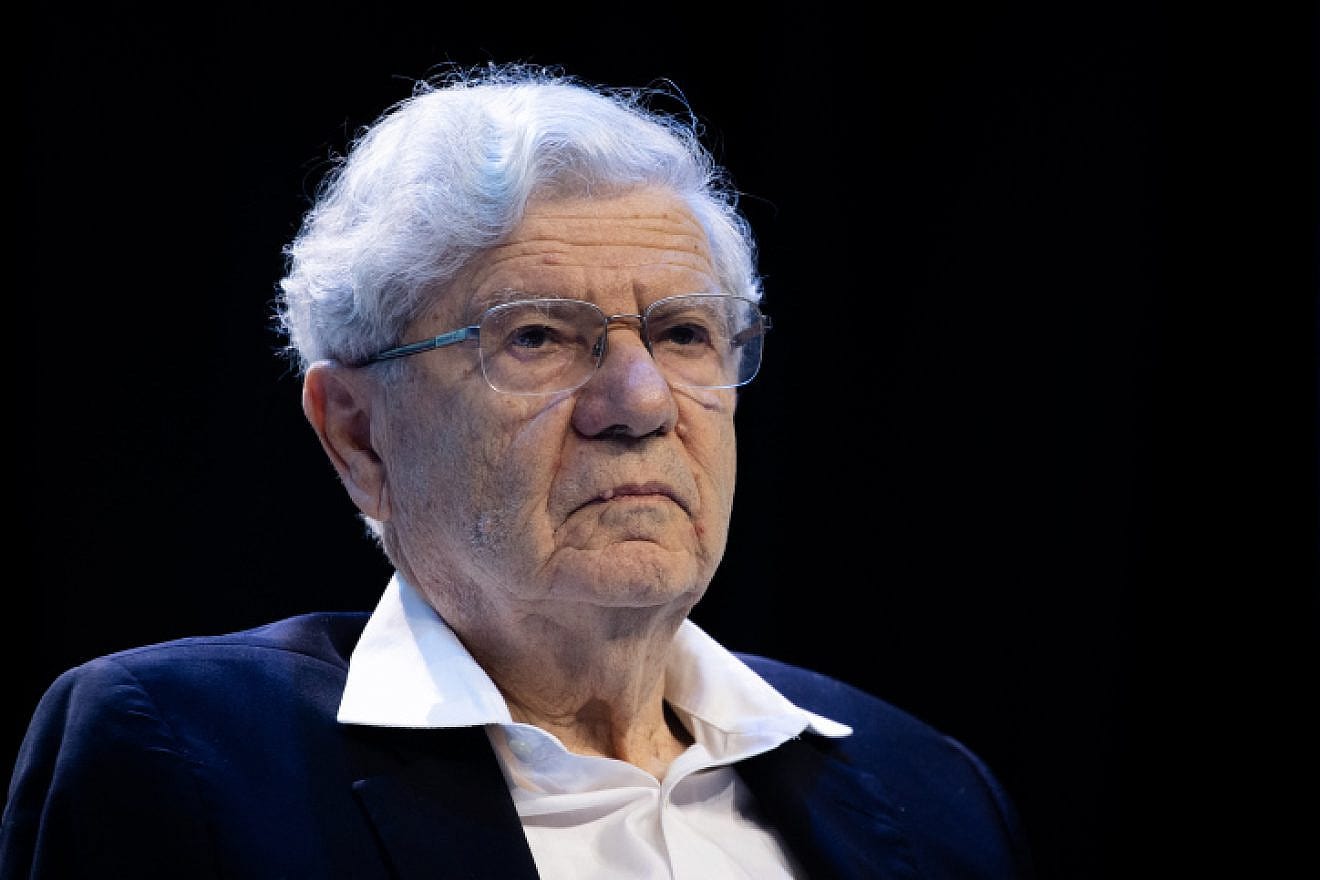 Zrozumienie Bliskiego Wschodu wymaga znajomości różnicy między Szalom i Salam
Zrozumienie Bliskiego Wschodu wymaga znajomości różnicy między Szalom i Salam
Daled Amos
Tłumaczenie: Małgorzata Koraszewska

Miałem okazję rozmawiać z doktorem Haroldem Rhode.
Doktor Harold Rhode zajmuje się historią islamu i przez lata żył w świecie muzułmańskim. Przez 28 lat był doradcą amerykańskiego Departamentu Obrony ds. świata islamu.
Czy wszyscy sygnatariusze Porozumień Abrahamowych, Arabowie i Izraelczycy, postrzegają Porozumienia Abrahamowe w ten sam sposób?
My, Żydzi, chcemy, żeby ludzie nas kochali. Pokój, którego szukamy, ma polegać na tym, że wy przestajecie walczyć, my przestajemy walczyć i wszyscy będą żyć razem w pokoju. Ale muzułmanie nie mają takiej koncepcji pokoju. Nie przestaną, dopóki cały świat nie będzie muzułmański. Podążają za tym, co zrobił ich prorok Mahomet. Podpisał 10-letnie zawieszenie broni z Kurajszytami. Po 2 latach Mahomet zdał sobie sprawę, że Kurajszyci osłabli, więc zaatakował ich i wygrał. Istnieje klasyczne łacińskie sformułowanie „Bellum omnium contra omnes, tempo inter omnes interpellatur”, że wojna jest naturalnym stanem człowieka, przerywanym okresami pokoju.
Nie patrzymy na życie w ten sposób, ale historycznie rzecz biorąc, większość ludzi tak patrzy. Z muzułmańskiego punktu widzenia mogą zgodzić się na stosunki ze swoimi wrogami – niezależnie od tego, czy są muzułmanami, Żydami czy kimkolwiek innym. Mogą zawierać tymczasowe porozumienia, tak jak to zrobił ich prorok. Umowy te można wielokrotnie odnawiać. Ale myślenie, że Saudyjczycy postrzegają pokój tak, jak my, Żydzi, jest mrzonką.
W 1949 r., po wojnie o niepodległość Izraela, na Rodos odbyła się konferencja pokojowa. Arabowie nalegali, aby granice nazywać „liniami zawieszenia broni”, a nie granicami. Sytuacja nie została trwale ustalona. Arabowie nie znają koncepcji, że kiedy walki się skończą, możemy zostać przyjaciółmi. Jeśli sądzimy, że uda nam się osiągnąć porozumienie pokojowe z Saudyjczykami w taki sposób, w jaki my rozumiemy pokój, będziemy rozczarowani.
Czy to oznacza, że Porozumienia Abrahamowe są mrzonką?
Nie, to nie znaczy, że Porozumienia Abrahamowe są iluzją. Możemy zawierać umowy z krajami arabskimi – pod warunkiem, że będziemy mieć rzeczy, których od nas oczekują, takie jak zaawansowana technologia, połączenia ze światem zewnętrznym i alternatywne trasy zamiast Kanału Sueskiego. Interesuje ich to, co z tego wyniknie dla nich, a nie przyjaźń. Przyjaźń jest między ludźmi. Kraje łączą się ze sobą ze względu na wspólne interesy. Porozumienia Abrahamowe nie dotyczą pokoju; chodzi w nich o to, co leży w interesie obu stron.
Arabskie słowo „salam” nie ma nic wspólnego z hebrajskim słowem szalom. Szalom pochodzi od rdzenia oznaczającego „kompletność”. Słowo „szalaim” oznacza płacić. Kiedy dwie osoby dojdą do porozumienia w sprawie ceny, płatność kończy proces.
W języku arabskim słowo „salam” jest podobne do hebrajskiego słowa „szalom”, ale nie mają one tego samego znaczenia. „Islam” i „salam” pochodzą z tego samego arabskiego rdzenia. Islam oznacza „poddanie się”, podczas gdy „salam” oznacza coś w rodzaju szczególnego poczucia radości, jakie ktoś odczuwa dzięki poddaniu się woli Allaha poprzez islam. Z drugiej strony, szalom oznacza pozostawienie przeszłości w spokoju, co jest koncepcją całkowicie obcą islamowi. Jasne jest, że „salam” i „szalom” nie oznaczają tego samego.
Poniższy przykład ilustruje arabskie znaczenie tego słowa w kontekście muzułmańskim: Jeśli przyjrzeć się korespondencji między Jemenem a Arabią Saudyjską podczas wojny w 1934 r., przywódcy obu stron przesyłali sobie nawzajem najgorsze groźby: a potem kończyli swoje listy słowami „salam alejkum”. Przywódcy ci nienawidzili się nawzajem, ale byli współmuzułmanami, którzy zwracali się do siebie. Jeśli więc „salam” oznaczało pokój, jak mogliby kończyć swoje listy do siebie „salam alejkum”? Jak mogli zakończyć swoje listy słowami: „Pokój wam”? Ponieważ to wyrażenie nie ma nic wspólnego z pokojem – dotyczy poddania się Allahowi, do czego obaj, jako współmuzułmanie, byli zobowiązani.
Mamy więc do czynienia z kulturami tak niesamowicie odmiennymi od naszej, od kultury zachodniej, która częściowo opiera się na kulturze hebrajskiej.
Jestem za Porozumieniami Abrahamowymi, i to bardzo. Kraje arabskie są zainteresowane, ponieważ Izrael jest silny. Dowodem na to jest moment, kiedy kontakt między Izraelem a ZEA stał się poważny. Netanjahu przemawiał przed Kongresem USA przeciwko porozumieniu z Iranem w 2015 r., wbrew Stanom Zjednoczonym. Pokazał, że Izrael jest niezależnym krajem, który może podejmować własne decyzje i jest gotowy przeciwstawić się USA. To wtedy kraje arabskie zdecydowały, że mogą robić interesy bezpośrednio z Izraelem. To dlatego Arabia Saudyjska i Izrael mają dobre stosunki od długiego czasu i oba kraje żywią silną niechęć do Mahmuda Abbasa, Hamasu i Bractwa Muzułmańskiego.
Ale czy nie pomyślałbyś, że w pewnym momencie „eksperci” zorientują się, że świat arabski jest inny?
Nie, wcale. Niewielu z tych „ekspertów” zna języki, nie poświęcili czasu na poznanie i zrozumienie kultur świata muzułmańskiego. Myślą, że każdy, kto mówi po angielsku, jest ukrytym Amerykaninem. Biały Dom zignorował Kurdów, ale kiedy Irak został wyzwolony podczas wojny w Zatoce Perskiej, Biały Dom powitał ich jako część Iraku. Wyższy rangą urzędnik Departamentu Stanu zwrócił się do Kurdów i powiedział im: „Musicie przestać myśleć o sobie jak o Kurdach; musicie myśleć o sobie jak o Irakijczykach”.
Eksperci nie czytają Bernarda Lewisa. Czytali Edwarda Saida. Jego podejście jest takie, że nigdy nie zrozumiesz innej kultury, więc nie marnuj czasu na próby. Nie ucz się języków i nie ucz się kultury. Postawa Bernarda Lewisa była zupełnie inna. Powiedział, że trzeba zanurzyć się w kulturze i języku. Musisz spróbować zrozumieć, patrzeć na to, co robią i co mówią w kontekście ich kultury. We współczesnym języku to, co robią eksperci, jest równoznaczne z powiedzeniem danej osobie, aby nie myślała o sobie jak o mężczyźnie czy kobiecie, ale raczej jak o człowieku.
Pamiętam reakcję bardzo wysokiego rangą [zachodniego] przywódcy, gdy w 2011 r. wybuchła wojna w Syrii. Zasugerowałem, że to nic innego jak powrót starożytnego konfliktu szyicko-sunnickiego. Jego odpowiedź brzmiała: „Cóż, nie możemy tego mieć!” Pomyślałem wtedy, że nie ma znaczenia, czy możemy to mieć, czy nie. Faktem jest, że oni to tak postrzegają. Rzeczywistość jest rzeczywistością i jeśli zdecydujesz się ją zignorować, robisz to na własne ryzyko.
Porozmawiajmy o 7 października. Z jednej strony atak Hamasu ujawnił słabość Izraela. Z drugiej strony Izrael wkroczył do Gazy i podjął rozprawę z Hamasem w stopniu, jaki niewielu mogło przewidzieć.
Hamas błędnie odczytał Żydów.
Ale jak Saudyjczycy i reszta państw Zatoki Perskiej to odczytują? Czy postrzegają to jako oznakę izraelskiej słabości, czy też postrzegają reakcję Izraela jako oznakę siły Izraela?
Bardzo dobrze rozumieją siłę, a Izrael powrócił bardzo mocno. Ta część świata ma ogromną cierpliwość – Żydzi nie, ale wszyscy inni tak. Wiedzą, jak czekać. Niech Saudyjczycy odłożą podpisanie porozumienia. Nie obchodzi mnie, czy istnieje formalne porozumienie między Izraelem a Arabią Saudyjską, ponieważ ich stosunki są tak silne. Relacje zachodzą między rządami, ponieważ te kraje arabskie rządzone są od góry do dołu, w przeciwieństwie do demokracji, gdzie przywódcy są wybierani przez naród i muszą brać pod uwagę wolę narodu, któremu przewodzą.
Wydaje się, że Izraelczycy mają zachodni obraz Bliskiego Wschodu. Można by pomyśleć, że powinni mieć lepszy wgląd i zrozumienie swoich arabskich sąsiadów.
Na pozór Izrael jest krajem zachodnim. Ale kiedy spojrzysz na powierzchnię, zobaczysz, jak Izraelczycy zareagowali na kwestię reform sądownictwa, co Arabowie uznali za słabość – to kolejny powód, dla którego Hamas zdecydował się akurat teraz zaatakować – ale Izrael stworzył młodsze pokolenie, ludzi którzy będą mieli ogromne znaczenie po tej rewolucji przeciwko polityce, wojsku, wywiadowi i mediom: „Narażamy nasze życie – nie dla was, ale dla narodu żydowskiego”. To jest to, co mówią. Zobaczymy dokąd to wszystko prowadzi. Wyjdzie to tylko na zdrowie.
“Od redakcji „Listów z naszego sadu”
Ten końcowy wniosek Harolda Rhode wydaje się potwierdzać list rezerwistów IDF do polityków i dziennikarzy:
* * * * *
„My, żołnierze gotowi poświęcić wszystko dla naszej maleńkiej ojczyzny, mamy tylko jedną prośbę. Nasz naród, naród, obywatele, rezerwiści na froncie i nasze rodziny w kraju – wszyscy jesteśmy zjednoczeni. Walczymy ramię w ramię. Wspieramy się nawzajem. A nawet żegnamy się nawzajem przy grobach. I wszystkich łączy wzajemna miłość, która nie ma granic.
Nie psujcie nam tego.
Hamas, Hezbollah, Dżihad, Huti, Irańczycy – żaden z tych wrogów nie przeraża nas ani nie osłabia.
Kto nas przeraża? Media, wypowiedzi polityków na „X” i przecieki z rządu. Niekończące się kłótnie w mediach społecznościowych. Wy nas przerażacie. To wy nas osłabiacie. Jesteśmy murem, który was chroni, a wy narażacie nas na zniszczenie od wewnątrz.
W ciągu ostatniego roku – politycy koalicji i opozycji, kanały informacyjne 11, 12, 13, 14 i wszyscy komentatorzy obu stron w mediach społecznościowych – pokazali nam, że wiedzą, jak rozerwać kraj na strzępy, stawić nas przeciwko sobie i doprowadzić kraj do kryzysu o bezprecedensowych rozmiarach.
Mamy po prostu dość. Jesteśmy zmęczeni tym, że nasz niesamowity, zjednoczony i potężny naród jest wciągany w błoto przez „wpływających na opinię publiczną”, którzy prowadzą dyskurs pełen podziałów i braku jedności, jakby wciąż był 6 października.
My, żołnierze rezerwy, wzywamy, aby to się skończyło.
Nie pozwolimy, żebyście znowu nam to zrobili. Zatem teraz przystępujemy do działań mających na celu zachowanie projektu syjonistycznego. Wzywamy wszystkich, których słowa mają konsekwencje:
Jeśli nie masz nic jednoczącego do powiedzenia: zamknij się.
Przestań nam gratulować bezpiecznego powrotu do domu. Wróćmy do domu w pokoju.” [To jest gra słów szalom: b’szalom oznacza bezpieczeństwo, szalom oznacza pokój.]
Daled Amos (Bennet Ruda) – Izraelski bloger piszący o historii i problemach Bliskiego Wschodu, a w szczególności Izraela. http://daledamos.blogspot.com/
Zawartość publikowanych artykułów i materiałów nie reprezentuje poglądów ani opinii Reunion’68,
ani też webmastera Blogu Reunion’68, chyba ze jest to wyraźnie zaznaczone.
Twoje uwagi, linki, własne artykuły lub wiadomości prześlij na adres:
webmaster@reunion68.com




